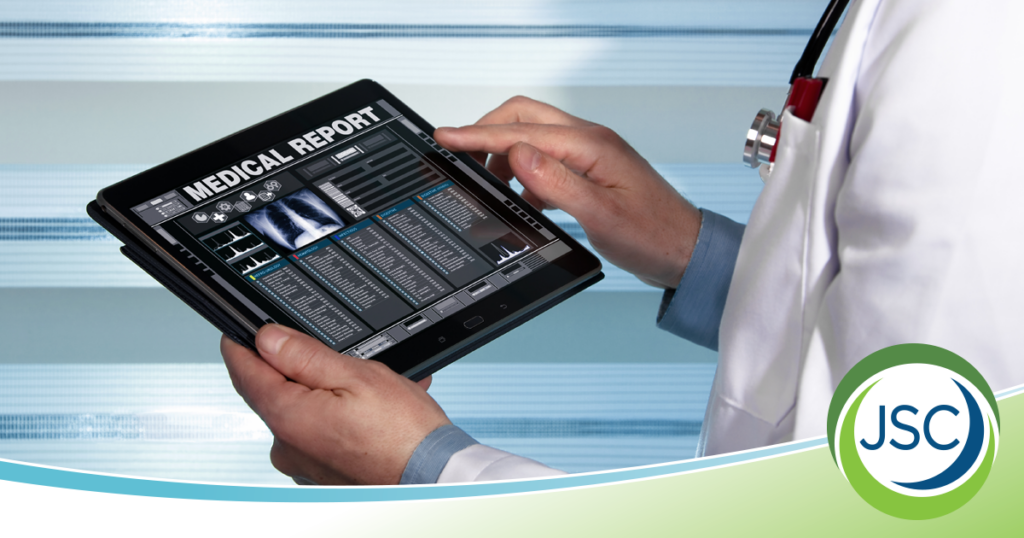In recent years, electronic health records (EHRs) have come to the forefront of the United States healthcare reform. An EHR is defined as an electronic record of patient health information generated by one or more encounters in any care delivery setting. Included in this information are patient demographics, progress notes, problems, medications, vital signs, past medical history, immunizations, laboratory data, and radiology reports. While the benefits of transforming the healthcare system from a mostly paper-based industry to a digital one are many, there are still critics—and for good reason.
Below are some of the pros and cons of EHRs:
Benefits
- Enhanced collaboration. In the era of clinically-integrated care, it is imperative that doctors, hospitals, and labs are able to share a mutual patient’s health information with each other—digitally, in real time—so that they can work more effectively as a team. This means that each provider can more easily stay in the loop on illnesses, treatments, and surgeries, thus mitigating errors and improving quality care.
- Access to information. Medical advancement is largely dependent on research. Digital records—as opposed to handwritten—inherently lead to increased legibility and comprehensiveness. This makes it easier for researchers to access information, identify subjects, track quality of care, and conduct essential research.
- Patient education. In the future, patients are expected to be able to view EHRs from their own devices, enabling the population to stay better informed about their own health. By logging into a patient portal, patients would be able to see the results of a recent lab test, for example, or find out when they last had a tetanus shot.
Drawbacks
- Waste time. The Annals of Internal Medicine published a new study showing that physicians spend 49.2 percent of their work days on “EHR and desk work” compared with just 27 percent of their in-office hours on “direct clinical face time” with patients. Considering 97 percent of our Nation’s hospitals and three-quarters of doctors are using EHRs, that’s quite a bit of wasted time…time that could potentially be better spent practicing their craft.
- Physician burnout. According to research in Mayo Clinic Proceedings, the hours upon hours of EHR data entry are taking a toll on physicians. The heavier workload has been proven to be a major factor in physician burnout. As the physician shortage is expected to continue, critics of EHRs argue that we need to mitigate any factors that could contribute to the early retirement of doctors.
- Privacy concerns. As with any online digital format, concerns of breach exist. EHRs are full of personal data such as Social Security numbers, dates of birth, and health insurance numbers—all of which could lead to identity theft if in the hands of the wrong person. In addition, concern lies within the conversion from a paper-based filing system to an EHR, as there is a potential for misplacement of data throughout the process.
When weighing the pros and cons of EHRs, it’s important to remember that the healthcare industry is a colossal one, and any type of reform—good or bad—will take time. There will be a learning curve. It has been less than a decade since EHRs have become widely adopted by healthcare organizations across the nation, so only time will tell whether the benefits will outweigh the drawbacks in the long run.




